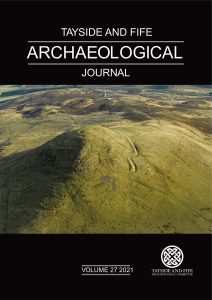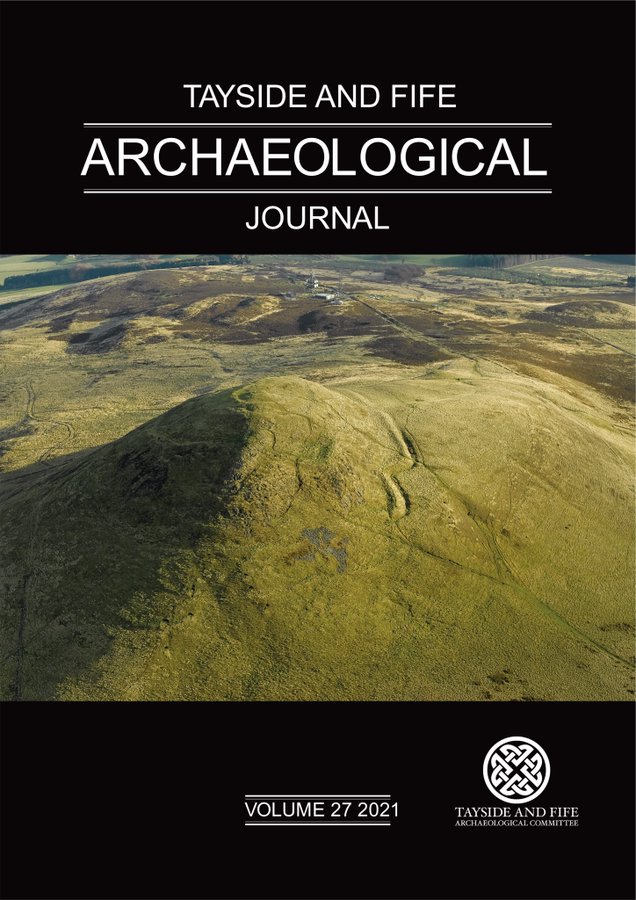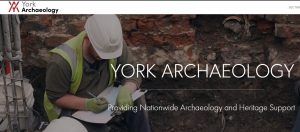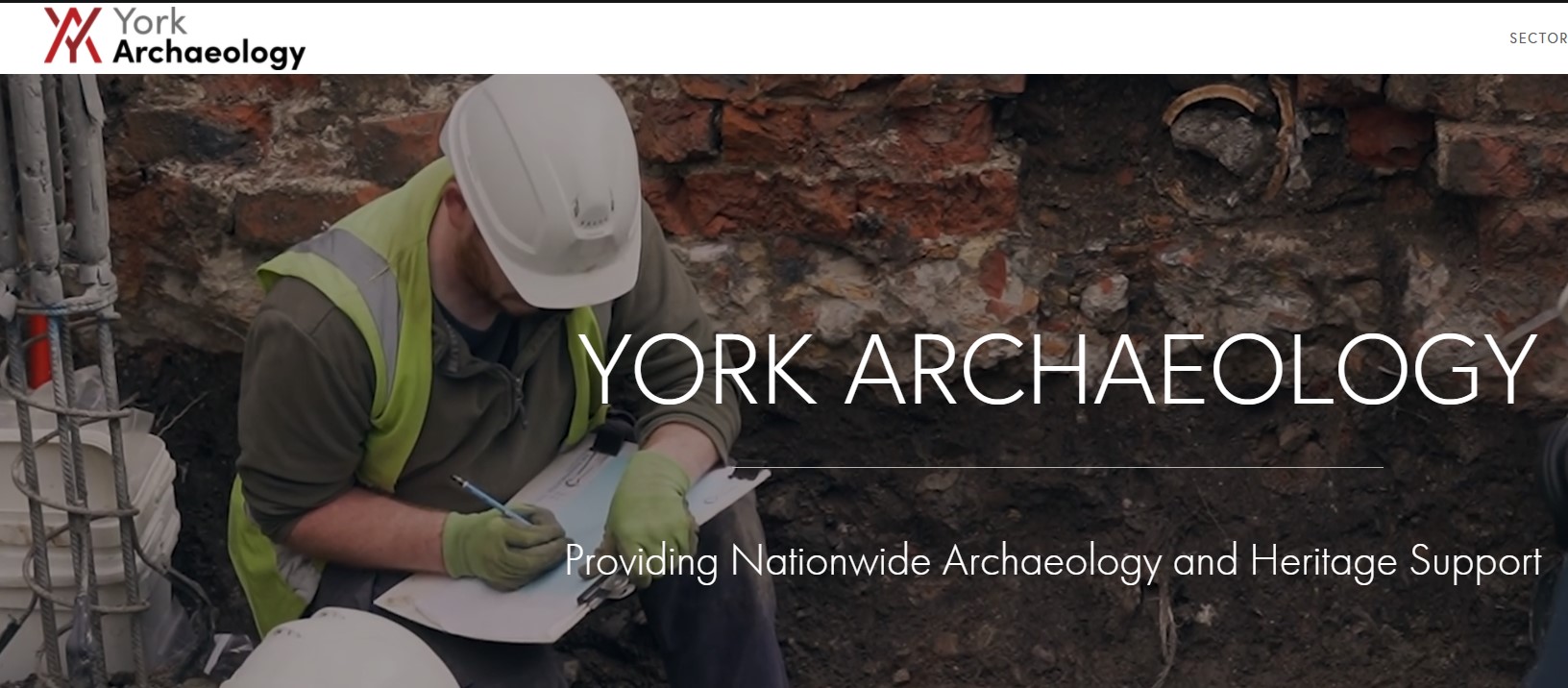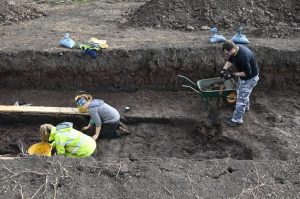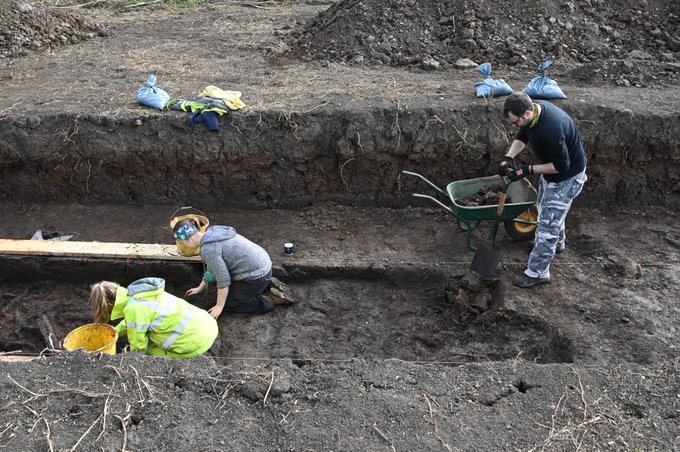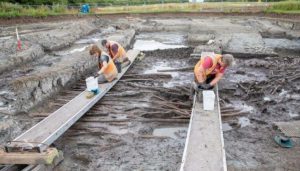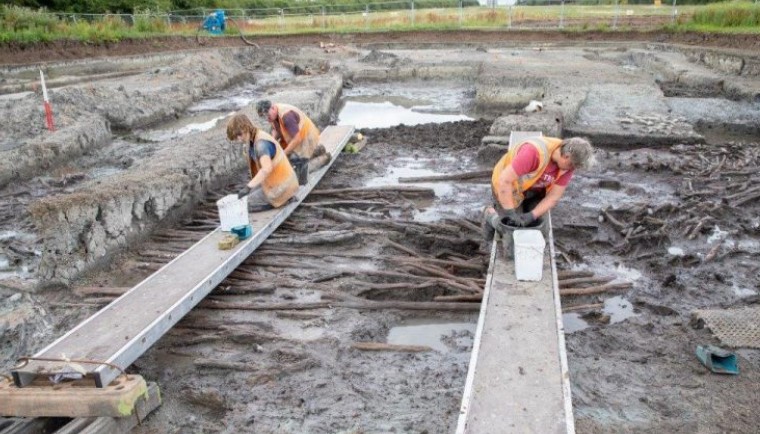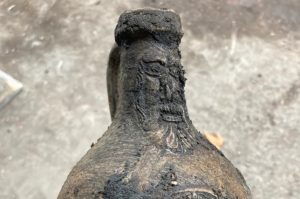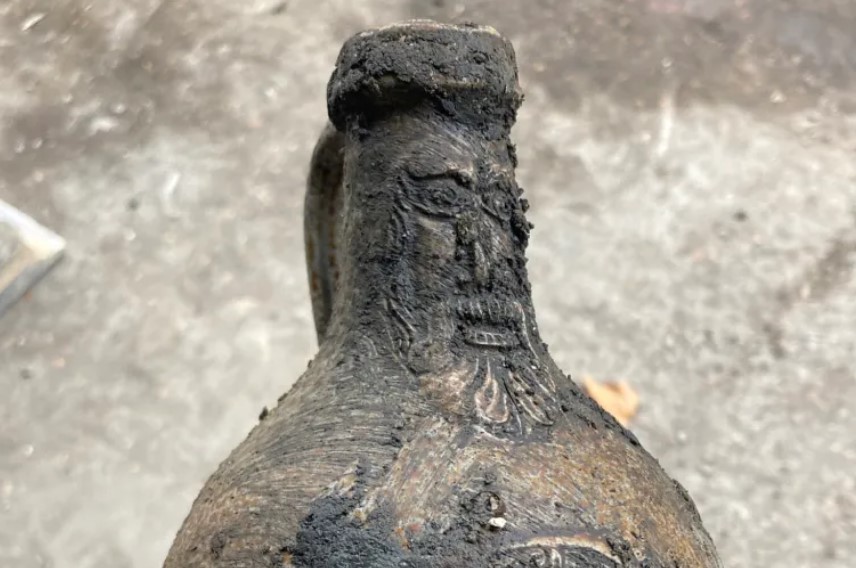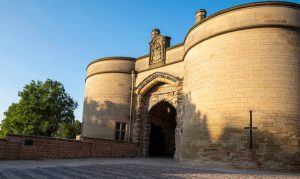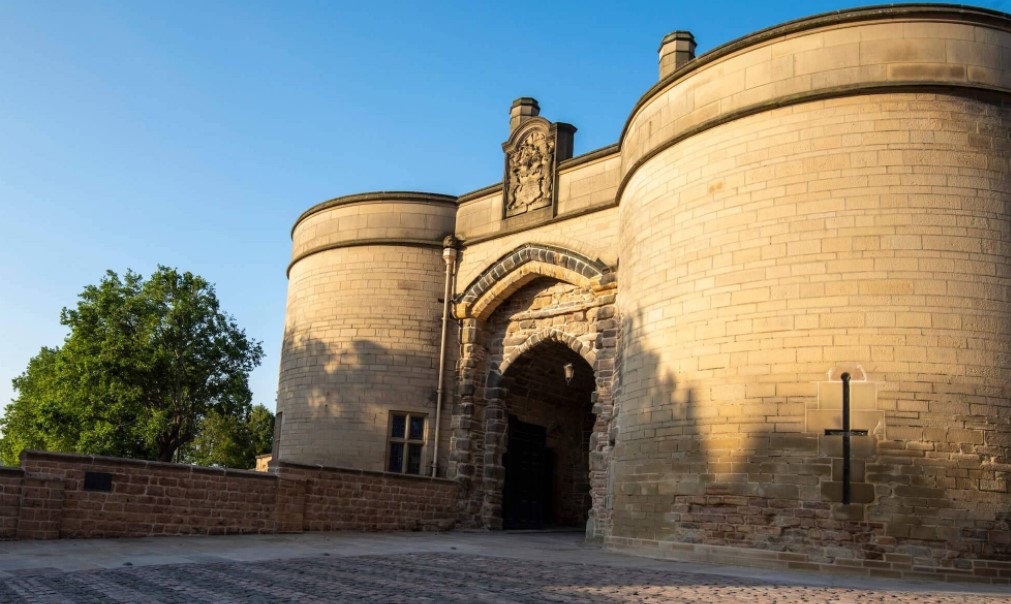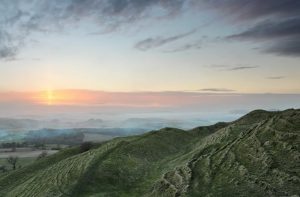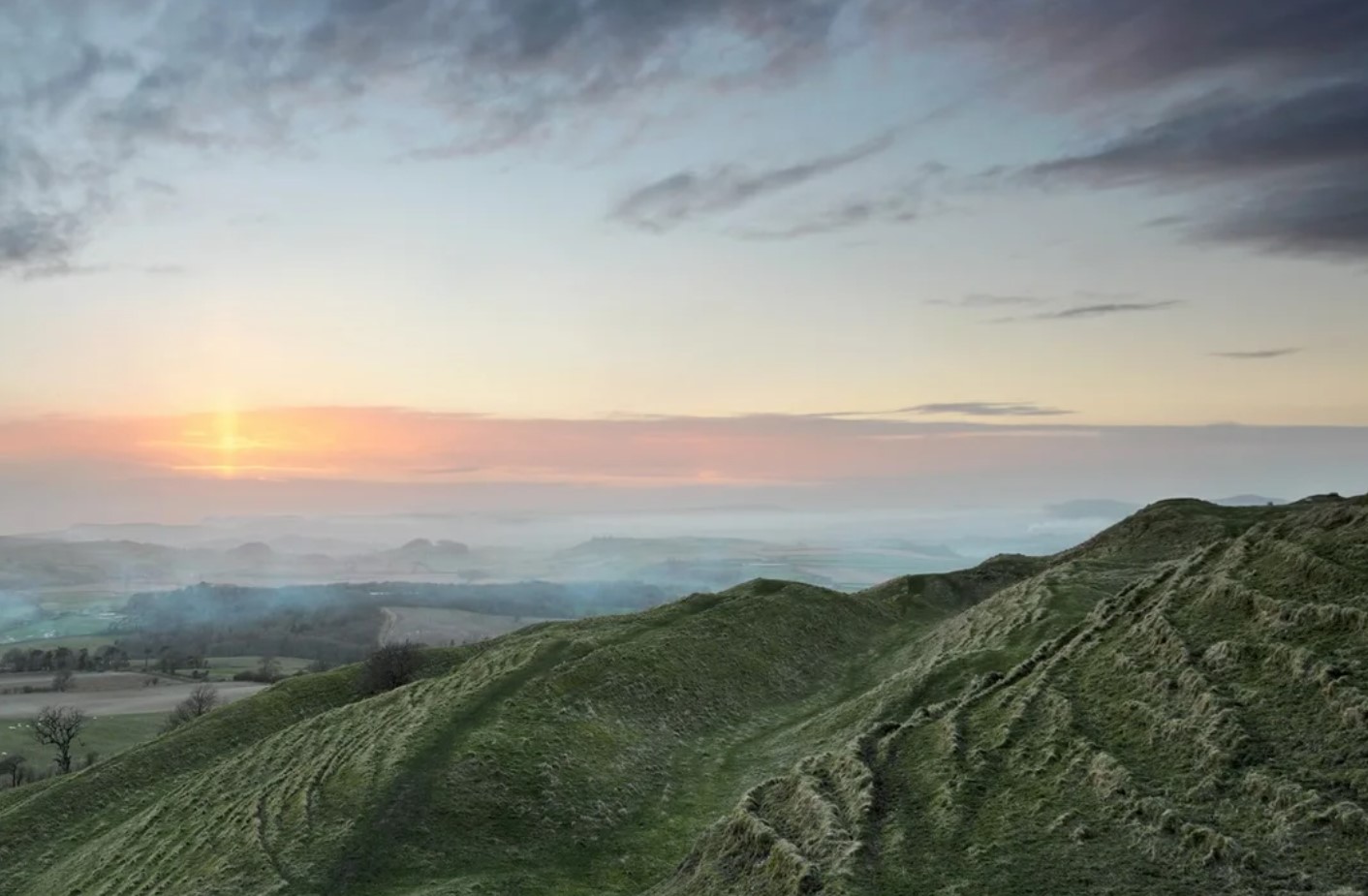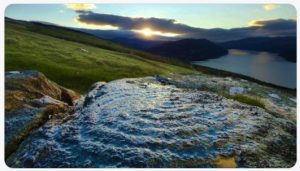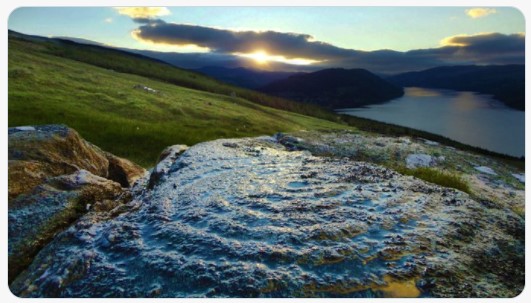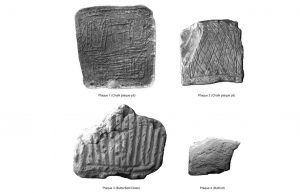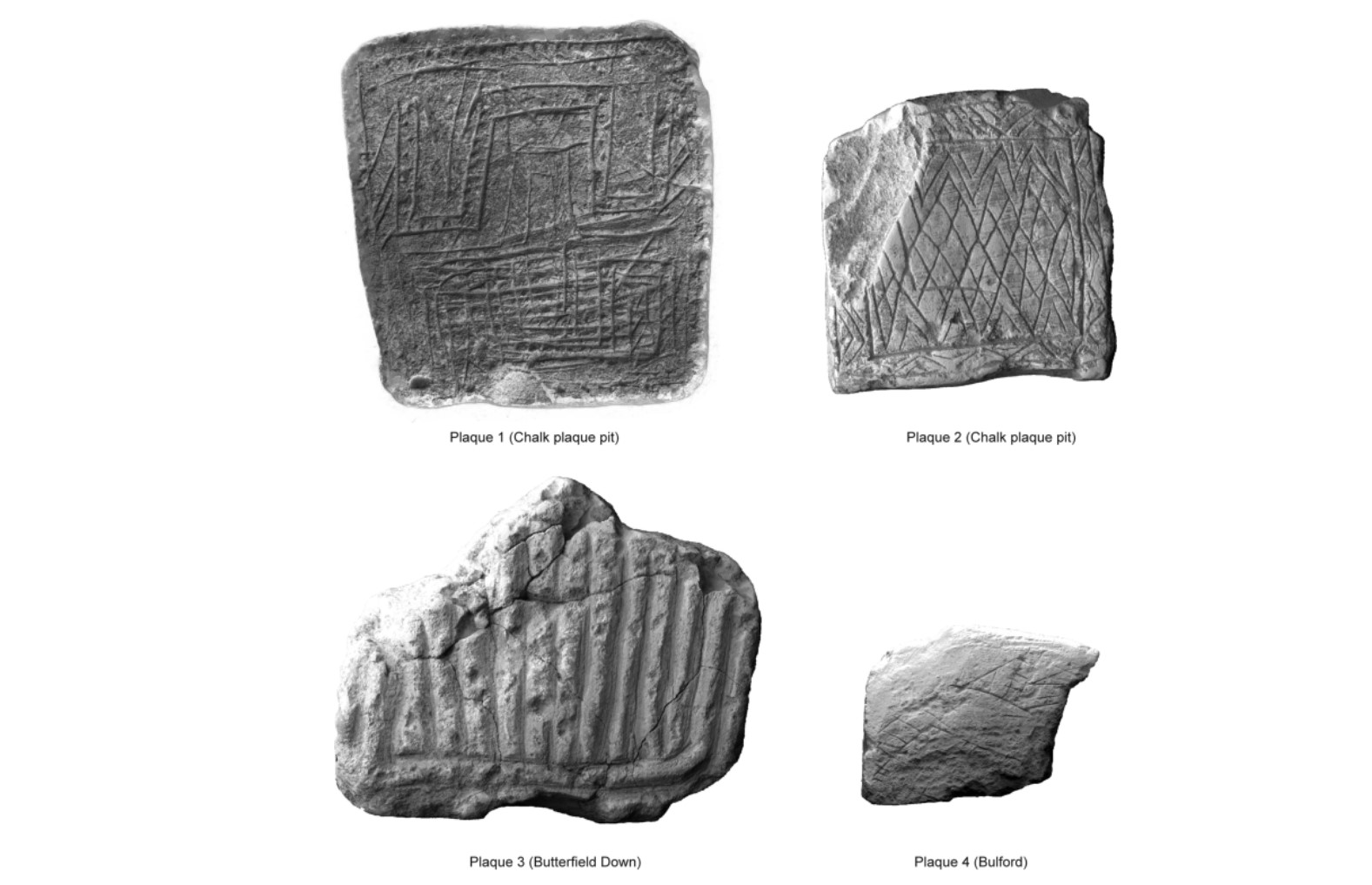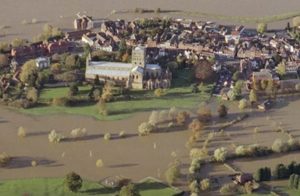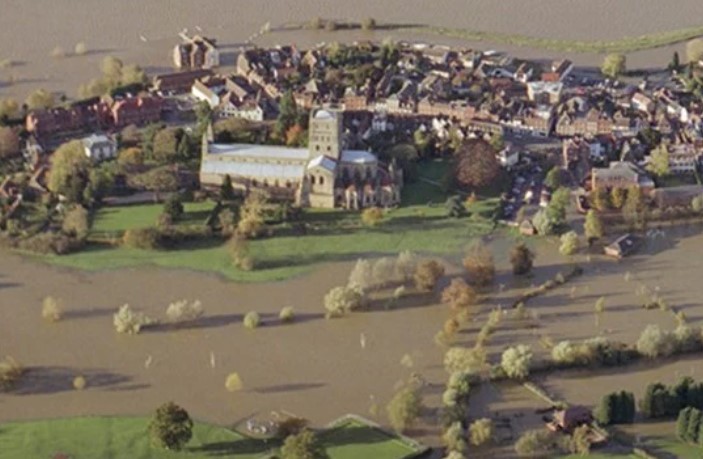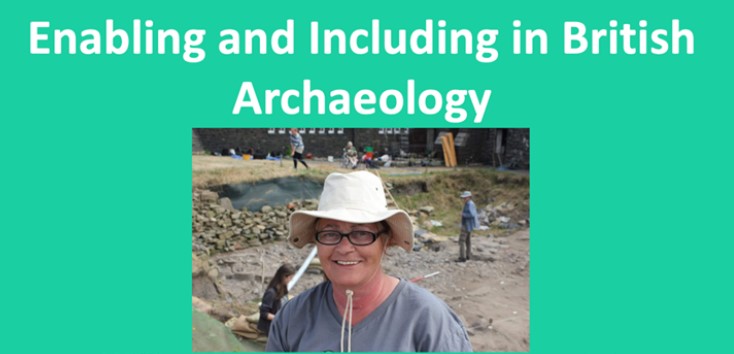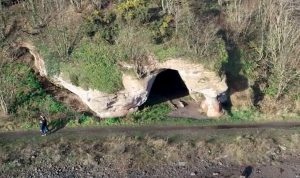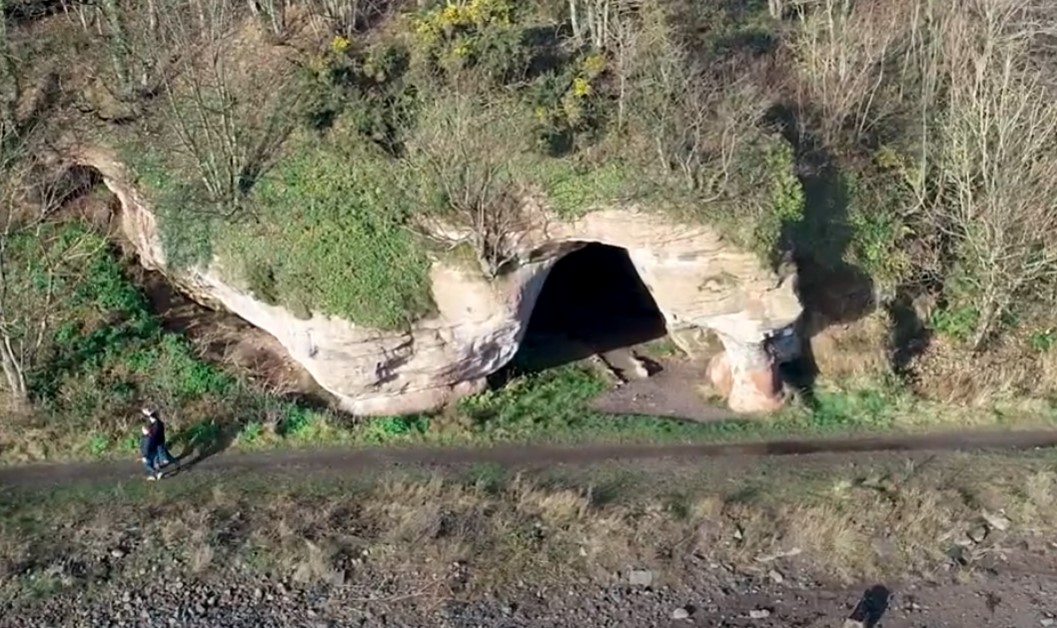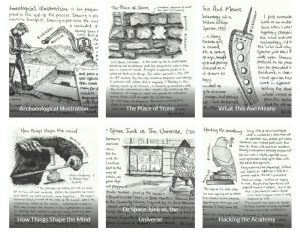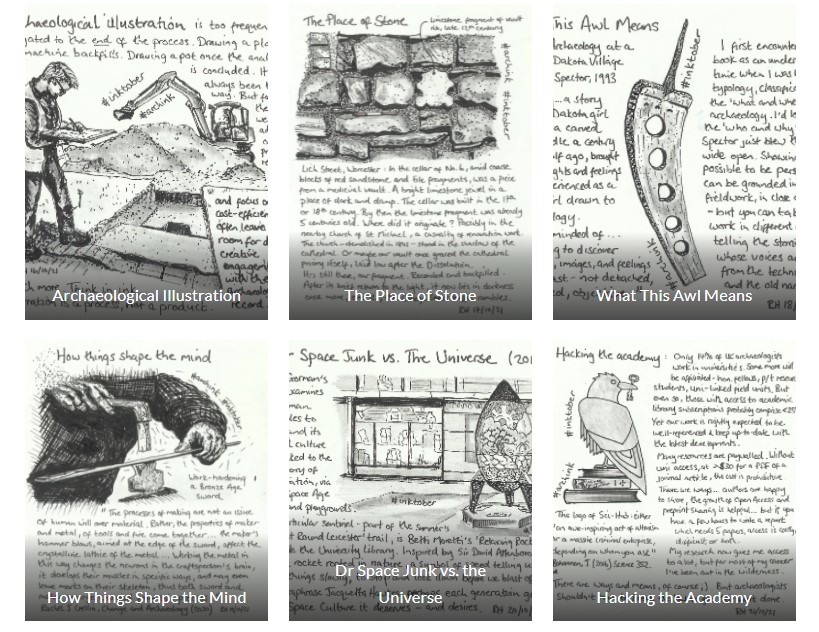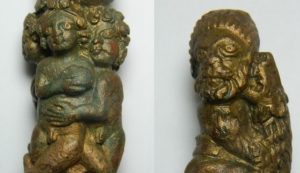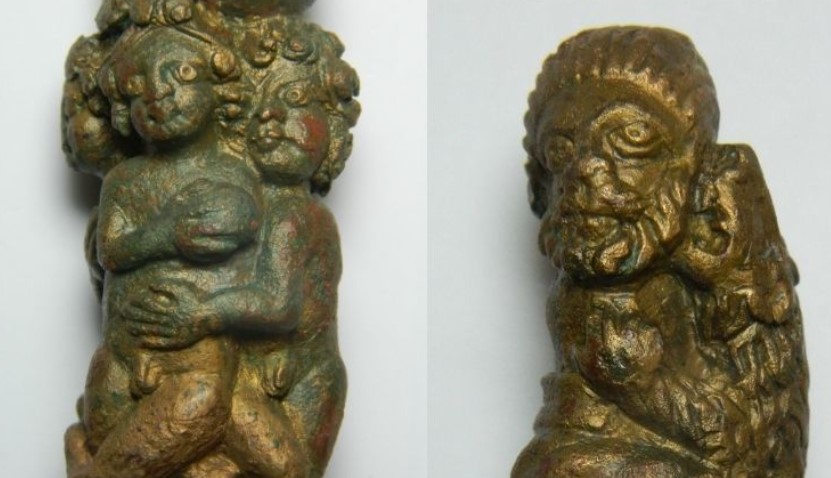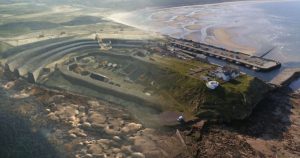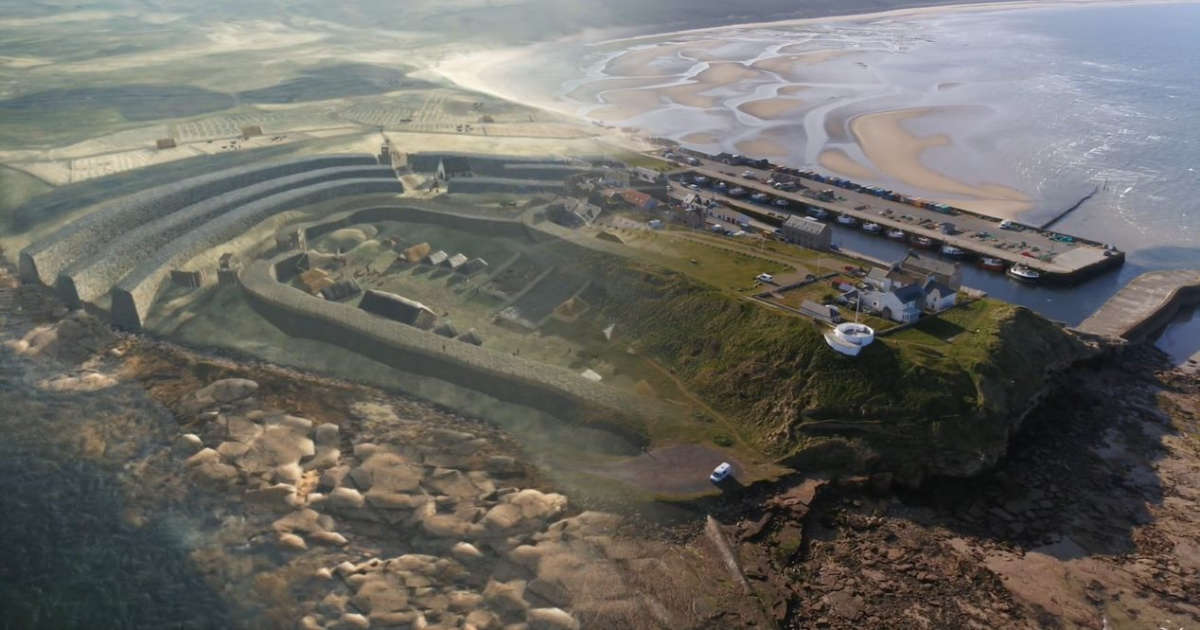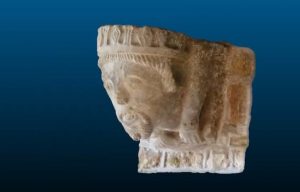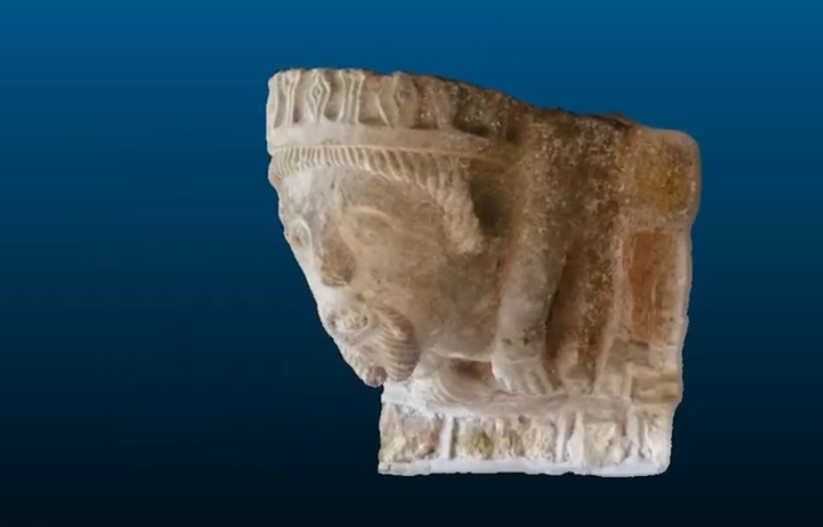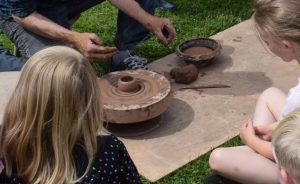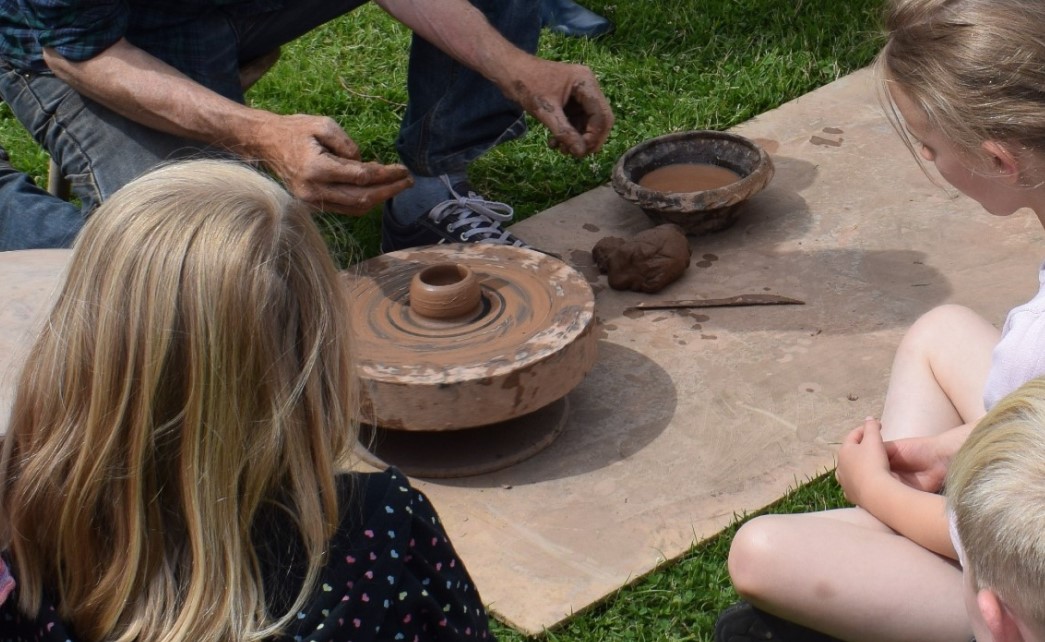News about archaeology and heritage in the UK
Week ending 8th November 2021
Tayside and Fife Archaeological Journal 27 has landed and is free to read
A wealth of articles awaits inside
- An archaeological survey of the fort on East Lomond Hill
- The Logierait terraces, a place of significance
- An Iron Age burial with a polished stone disc from Baledgarno, Perth and Kinross
- Multi-isotope analysis of the human skeletal remains from Blair Atholl, Perth and Kinross, Scotland
- Two medieval pilgrim badges attributed to St Margaret, Queen of Scotland
- ‘Feart Maidens’ – the witches of Perthshire
- A new interpretation of the Foulden Seal Matrix
Volume 27 (2021) | Tayside and Fife Archaeological Committee (tafac.org.uk)
York Archaeology – – three become one
Three become one with the renaming of the York, Nottingham and Sheffield commercial archaeology and heritage branches of York Archaeological Trust now known as York Archaeology. Formerly, all three branches were known by different names, even though they had been working as one team on projects for a while now. New logo, New website.
New Flag Flen project begins
Cambridge Archaeological Unit are starting a new project to help evaluate areas of the amazing Flag_Fen! Using a small number of trenches they will be evaluating areas of the site to better understand the condition and preservation of Later Bronze Age timbers.
Flag Flen Project | Department of Archaeology (cam.ac.uk)
Worcestershire Archaeology Day 2021 – 20th November
Fascinating finds, a Roman decapitation cemetery, 17thC Worcester, Iron Age farm, a wetland landscape, protection marks & Portable Antiquities Scheme are some of the topics at this year’s Worcestershire Archaeology Day.
This annual Archaeology Day on Sat 20 Nov has talks from staff and guests about excavations, discoveries and projects around the county. Bookings are now open
Worcestershire Archaeology Day 2021 – 20th November – Worcestershire Archive & Archaeology Service (explorethepast.co.uk)
German Frechen stoneware Bartmann
This complete German Frechen stoneware Bartmann (or Bellarmine) jug has a benign face and a medallion with an unknown coat of arms. It dates from c. 1580-90 and was used for serving alcohol (probably ale). found by PCA Archaeologists
Complete examples of these jugs are more frequent finds than other post-medieval pots because they are a robust stoneware and were often used as witch bottles buried whole, containing nails, hair, urine and other items.
Find of the week! – Pre Construct Archaeology
How not to handle a case of abuse.
Staff of colour at Nottingham Castle Trust have submitted a formal complaint to the board of trustees over their handling of an alleged racist assault at the heritage site in August.
The Staff of Colour (SoC) Collective said they had chosen to speak out “anonymously and collectively” for fear of losing their jobs. They said employees of colour have yet to be offered any support following the incident on 17 August, when Black curator Panya Banjoko says she and her grandchildren were racially abused and physically assaulted on castle grounds.
Staff of colour make formal complaint against Nottingham Castle Trust – Museums Association
Wessex hillforts and habitats: where archaeology meets nature
Great news from the National Trust, thanks to £114,000 from Historic England, 13 Iron Age hillforts & 332 hectares of archaeology & priority habitat have been improved. 4 hillforts (Hod Hill, Pilsdon Pen, Lambert’s & Coney’s Castles) have been removed from the Heritage at Risk register. Learn more about the Project here.
Wessex hillforts and habitats: where archaeology meets nature | National Trust
Scotland’s Rock Art now online – over 22,000 records
Historic Environment Scotland has announced that the prehistoric Rock Art archive is now live on Canmore and Pastmap! Find everything from photos to sketches to 3D models, co-produced by the Scotland’s Rock Art Team over the past 5 years. (image by Dougie Scott)
Scotlands Rock Art| Canmore
Innovative technology sheds new light on Prehistoric chalk plaques from Stonehenge
Four rare Late Neolithic chalk plaques from the Stonehenge region have been subjected to non-invasive Reflectance Transformation Imaging (RTI) technology in a new study by experts from Wessex Archaeology, which has shed light on previously unseen artistic elements used during the ‘golden age’ of Neolithic chalk art.
Climate Friday webinars online
It’s never too late to start learning about the connection between Heritage & the Climate Crisis –Historic England Climate Friday Webinars are a great place to start! See below to access 15 webinar recordings. These include:
- Communicating the role of culture and heritage in climate action’
- ‘Heritage in Climate Planning (HiCLIP); recorded in October 2021 associated with the COP26 climate conference.
- Harnessing Cultural Heritage for Climate Resilience: ‘CLANDAGE’ Research Project
Climate Friday webinar Recordings | Historic England
The Enabled Archaeology Foundation Releases New Website
The Enabled Archaeology Foundation is a registered charity whose mission is to empower, enable and combat negative attitudes to dis/Abled involvement in heritage. The charity was founded by the late Theresa O’Mahoney and has recently gone through a period of restructuring; included in this is the launch of a new website. The new website has a number of sections, covering a variety of topics such as ‘articles and news’ which has a number of engaging and thought-provoking pieces. There is a section covering ‘further support and resources’ which includes various links to organisations, websites, articles, projects, guides, podcasts and even includes a section for employers. The events calendar lists related events that may be of interest
Enabled Archaeology Foundation – empowered | enabled | archaeology
Can We Hold Back The Waves at the Wemyss Caves?
Will unique Pictish carvings in Scottish caves survive sea level rise? See how collapsed sea walls no longer protect ancient caves and their spectacular Pictish carvings at the Wemyss Caves in Fife . Click the link for a three minute video by SCAPE to find out more.
A #ClimateHeritage story from Scotland, part of a series for COP26 in association with the CHERISH and CITiZAN projects
Can We Hold Back The Waves at the Wemyss Caves? – YouTube
Thought provoking and inspirational pen and ink drawings
Inktober is an annual drawing challenge: a drawing a day, throughout October, following a particular set of prompts.
This year, Illustrator and Archaeologist Rob Hedges followed Dr Katherine Cook’s archink series, each the title of an archaeology-related book. Some of the sketches discuss the books themselves, others explore concepts or objects loosely inspired by the title.
inktober | the incurable archaeologist
Thrown to the Lions? New evidence revealed for the use of lions during executions in Roman Britain
Archaeologists from University of Leicester Archaeology Service have discovered an elaborately-decorated Roman bronze key handle portraying the execution of captives in the arena by throwing them to lions.
The handle portrays a ‘Barbarian’ grappling with a lion, together with four naked youths cowering in terror.
Thrown to the Lions? New evidence revealed for the use of lions during executions in Roman Britain | News | University of Leicester
Scotland’s largest Pictish fort ‘reconstructed’ in new images
Three-dimensional images of Burghead in Moray have been created based on archaeological excavations by the University of Aberdeen. Professor Gordon Noble, who led the dig, said: “The scale of houses and buildings we have discovered evidence of show that this was a densely populated and important Pictish site.
Funded by Historic Environment Scotland as part of a wider video project to enable the public to learn more about Scotland’s Pictish past, the images showcase the enormous defensive ramparts, which were once thought to be eight metres thick and six metres high, as well as dwellings within the fort.
Scotland’s largest Pictish fort ‘reconstructed’ in new images – Original 106 Aberdeen (originalfm.com)
3D models of statue heads from All Saints’ Church, Ladbroke, Warwickshire
An animated collection of the 3D models created from the statue heads in All Saints’ Church, Ladbroke, Warwickshire, as part of Archaeological Research Services work with Ladbroke Heritage.
3D models of statue heads from All Saints’ Church, Ladbroke, Warwickshire – YouTube
Research project to promote tolerance by reshaping history education
A new research project led by a University of Stirling academic is to shake-up the way British history is taught to school children and presented to the public in order to promote tolerance.
Heritage expert Dr Chiara Bonacchi is set to work with teachers across Scotland, England and Wales, and partner with nine major museums and heritage venues, to improve education covering the Iron Age and Roman periods.
Research project to promote tolerance by reshaping history education | About | University of Stirling


